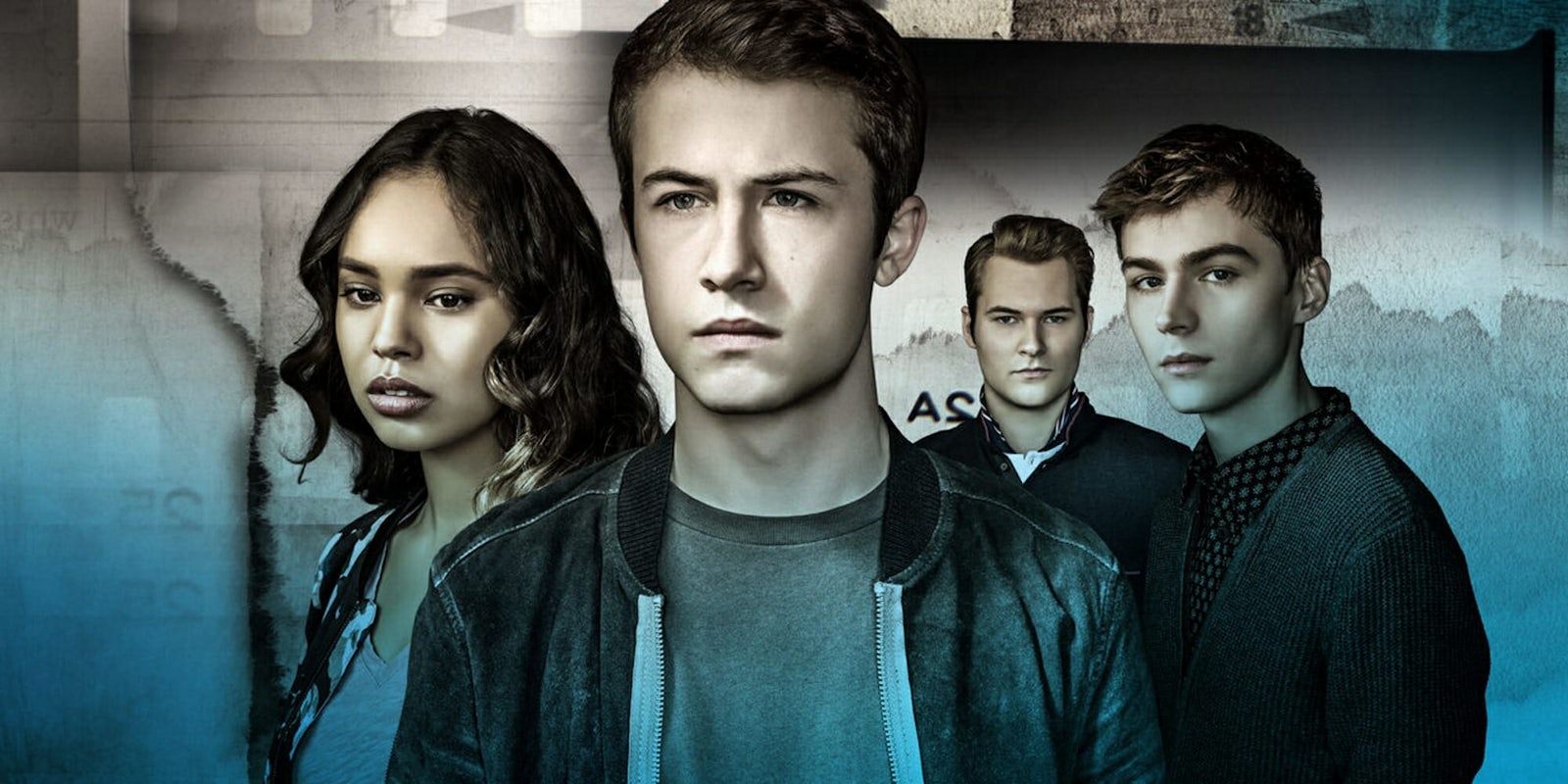Netflix’s teen drama 13 Reasons Why has remained incredibly controversial since its release in 2017, mostly due to its glorification of main character Hannah Baker’s suicide. Now, a new study suggests the show may be increasing suicide risks among teens.
The study, which comes from the University of Michigan, claims that out of 87 youth patients admitted to a psychiatric emergency department due to suicide-related concerns, 49 percent watched at least one episode of the show’s first season, and “over half” of those viewers believed the series “increased their suicide risk to a nonzero degree.” The study also found that identifying with Baker “was significantly related” to their believed increase in suicidal risk.
“Youths with more depressive symptoms and suicidal ideation were more likely to identify with the lead characters and report negative affect while viewing,” the study’s abstract reports.
Lead author Dr. Victor Hong told BuzzFeed News that the study’s authors noticed a “significant uptick” in teen patients with suicidal concerns after the show premiered, with viewers mentioning the show potentially influencing their thoughts.
“Some of them had even said that it was a real factor in why their suicidality or depression had worsened,” Dr. Hong told BuzzFeed.
Granted, the study admits that this is the first academic look at 13 Reasons Why’s mental health impact, and it solely looks at a high-risk sample of viewers. That means the study cannot make any definitive claims about the show’s impact on teen suicide risk in the general populace. However, its authors suggest there’s a “particular vulnerability to the show’s themes” among at-risk youth, stressing “the importance of prevention strategies to ameliorate risk” among those viewers.
The news quickly went viral on Twitter, in part because mental health activists have long complained about the show’s handle on suicide. For one, 13 Reasons Why provides an incredibly narrow look at suicide, instead focusing on “the ultimate fantasy of teen suicidal ideation,” as the Establishment’s Ijeoma Oluo writes. In some ways, the show glorifies suicide as a way to punish others, instead of treating teen suicide as a problem with myriad converging factors and psychological concerns.
https://twitter.com/QueerRain/status/1065248887408115717
https://twitter.com/MattOnTheMooon/status/1065250610176512000
My fiancé who is a mental health therapist predicted this when the show first came out. It’s stuck with me when she said it.
— Brain Fear Gone (@Brainfeargone) November 21, 2018
I was in volunteering in a hospital shortly after the season 1 premiere and the psychiatrists could honestly spend days talking about the negative effects of the show
— kristina (@kikiborojevic) November 21, 2018
Oh wow?!?! Really?!?! How could this have happened?? Its not like psychologist from all over the country plus the APA came together to warn everyone that this show will do exactly that. WE TOLD YALL AND YOU DIDNT LISTEN SO DONT ACT SURPRISED https://t.co/9UN3EbR9YE
— Grace (@Lilac_hair) November 21, 2018
https://twitter.com/princess__jes/status/1065252934638653440
Others simply weren’t shocked.
https://twitter.com/GAB11_11/status/1065241865849573376
https://twitter.com/lorn_michelle/status/1065249033684484096
No shit. It was also an issue back when the book came out and why people were pissed off the show was being made. https://t.co/0P2hsPxjAG
— Nic (@NicStarr) November 21, 2018
IS AN ELEPHANT HEAVY??? i been said this shit, it’s literally 2018. we’re in the golden age of copycats and suicide glorification. i don’t understand why this was even made a show, & the dumb case verdict made the tone no fucking better. https://t.co/P8olhPDZTb
— tae daddy (@taenoir) November 21, 2018
https://twitter.com/urmomlucy/status/1065244602523779072
No shock there! I have found the show to be incredibly problematic. Might have had good intentions, but the execution — naaaah bruh bruh. https://t.co/haz86KAVAr
— Sinafik (@sinafikb) November 21, 2018
I have always found this show disgusting due to it’s glorification of suicide, especially in teenagers. This is a completely irresponsible teaching to our youth about suicide and mental health. https://t.co/yzhJWFMyKz
— Michael Hanich (@MichaelHanich) November 21, 2018
“I dont get it, we threw out every single guideline for depicting suicide in media and it had a negative impact” https://t.co/fLf6gFKWLY
— Cuddle Cryptid (@CuddleCryptid) November 21, 2018
Meanwhile, a few Twitter users believe we should be helping teens instead of solely criticizing 13 Reasons Why. After all, it’s not as if the show alone causes suicide.
In unsurprising news, we are still blaming TV shows for teen suicide instead of offering an actual way to help those who suffer from mental health disorders. https://t.co/46eW4a92sU
— TrillAlt14 (@haidanib) November 21, 2018
https://twitter.com/TheNormaJeane/status/1065081244256542721
https://twitter.com/shannonplese/status/1065251788780118017
https://twitter.com/shannonplese/status/1065252253815193601
https://twitter.com/1B9J8P4/status/1065246188377702400
READ MORE
- What exactly is seasonal affective disorder?
- How to be less socially awkward, according to mental health professionals
- The best way to make friends as an adult, according to an expert
13 Reasons Why’s second season debuted on May 18.
For more information about suicide prevention or to speak with someone confidentially, contact the National Suicide Prevention Lifeline (U.S.) or Samaritans (U.K.).
H/T BuzzFeed News


